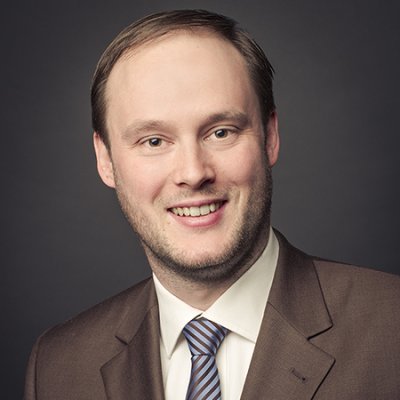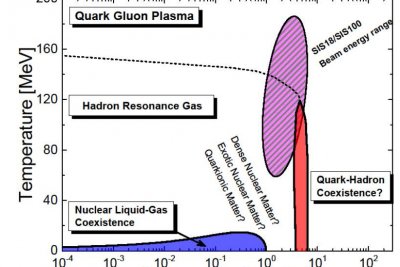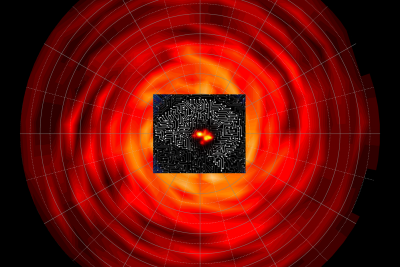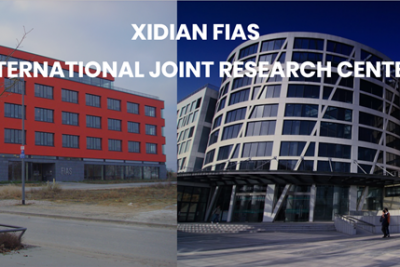Research Group of Jan Steinheimer-Froschauer

The research group focuses on developing and applying computational techniques to explore the properties and interactions of strongly interacting matter, such as hadrons, quarks and gluons in dense QCD matter and the quark-gluon plasma. The research involves using large-scale simulations and modeling, as well as machine and deep-learning methods, to study the behavior of matter under extreme conditions, such as those found in heavy-ion collisions and inside compact astrophysical objects like neutron stars. The group also works on developing new algorithms and software tools to understand the equation of state of quantum chromodynamics, the theory that describes the interactions of quarks and gluons. Overall, the research group's goal is to advance our understanding of the fundamental properties of matter and the evolution of the universe.
Members

Anton Motornenko
Office: 3|203 (FIAS)
Phone: +49 69 798 47622

Roman Poberezhnyuk
Office: 3|402 (FIAS)
Phone: +49 69 798 47612
Postdoctoral Researchers:
- Dr. Anton Motornenko, Dense QCD matter project. (Funded by the Stern-Gerlach Stipendium of the Stiftung Polytechnische Gesellschaft)
- Dr. Roman Poberezhnyuk, Dense QCD matter project. (Funded by the Alexander von Humboldt foundation through the Philipp Schwarz-Initiative)
Doctoral Students:
- Manjunath Omana Kuttan, together with Dr. Kai Zhou, Dense QCD matter project and Deepthinkers (Funded by GSI F&E grant)
Former Members:
- Oleh Savchuk Dense QCD matter project. (Now at MSU, USA)
- Alexander Greiner
- Ayon Mukherjee
Cooperations:
- At FIAS: The groups of Prof. Horst Stöcker and Dr. Kai Zhou and Esteban Vargas.
- Prof. Marcus Bleicher (Goethe Universität)
- Dr. Volker Koch and Dr. Jorgen Randrup (Nuclear Theory group, LBNL Berkeley, USA)
- Funded by DAAD-PPP project.
- Prof. Volodymyr Vovchenko (University of Houston, USA)
- Prof. Christoph Herold and Prof. Ayut Limphirat (SUT, Thailand)
- Prof. Yasushi Nara (Akita University, Japan)
- Prof. Qingfeng Li and Yongjia Wang (Huzhou University, PR China)
- Funded by DAAD-PPP project
- Prof. Abhijit Bhattacharyya (Calkutta University, India)
- Funded by an Alexander von Humboldt group linkage project
- Prof. Tetyana Galatyuk, (GSI and TU Darmstadt)
Projects

Dense matter in heavy ion collisions and neutron stars
In this project, we study the properties of dense elementary matter as described by the theory of the strong interaction QCD. Experimentally this form of matter can be created in relativistic heavy ion collisions at large-scale collider experiments, e.g. at the LHC@CERN, RHIC@Brookhaven Lab and FAIR@GSI as well as in the most compact objects we know to exist, neutron stars. Our group develops numerical methods and algorithms to describe the dynamical evolution of such heavy ion collisions with either transport theory or fluid dynamics. As such, the group is part of the UrQMD project (https://urqmd.org/). An important input of these simulations is the equation of state of QCD which is related to the microscopic interactions of elementary matter. In order to study this equation of state in the dynamical simulations we also provide numerical solutions of an effective chiral mean field model (CMF) based on state-of-the-art knowledge of QCD phenomenology.

Deep- and machine learning methods for data analysis in heavy ion reactions
In this research project (started in collaboration with Dr. Kai Zhou and Prof. Horst Stöcker) we aim at developing new methods and technologies based on machine- and deep-learning techniques to extract physical information from the wealth of data that is accumulated in modern day high-energy collider experiments. The research in this project was, in part, funded by a grant of the Samson AG and the BMBF through the ErUM-data pilot project.

The Xidian-FIAS international joint research Centre
The center (founded in 2019) promotes world leading international scientific research on scientific issues such as computer science, artificial intelligence, and theoretical life sciences. More information can be found here: https://xf-ijrc.net/